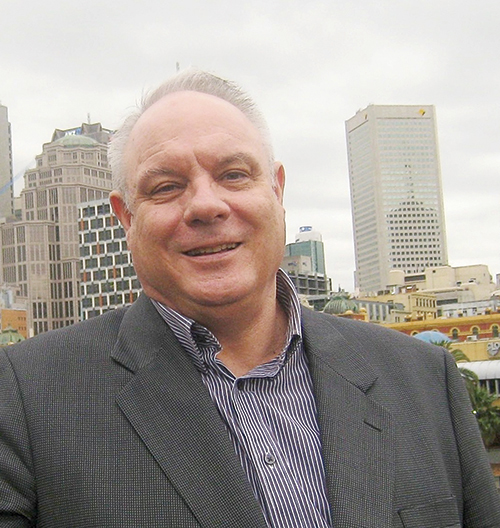“He did not stay silent,” said Jon Holt, a Portland State assistant professor of Japanese literature, referring to Maekawa Samio, the Japanese poet whom the government tried to silence during Japan’s involvement in World War II, known there as the Great Asian War.
He did not stay silent

“He did not stay silent,” said Jon Holt, a Portland State assistant professor of Japanese literature, referring to Maekawa Samio, the Japanese poet whom the government tried to silence during Japan’s involvement in World War II, known there as the Great Asian War.
During this time, it was “very hard, if not impossible, to raise a voice in dissent,” Holt said.
Maekawa’s voice will be the subject of discussion during Dr. Leith Morton’s lecture on campus this coming Monday, which is sponsored by the Center for Japanese Studies.
Be advised: “Not only is Dr. Morton an international scholar but a poet and a performer as well,” Holt said. “His reading voice has been highly praised by women in the U.S. and especially in Japan, where they have described it as ‘sexy.’”
Morton expressed enthusiasm for the reading at Portland State.
“What excites me about the event is the opportunity to speak about something that intersects with modern American history as well as modern Japanese history: World War II,”
Morton said in an email. “This war was the bloodiest in the history of the two nations and still reverberates among American families even today.”
The war reverberates among Morton’s family more than most.
“My uncle was killed in the war against Imperial Japan and my father fought for 5 years in the jungles of the Pacific against Imperial Japan—an experience I’m sure shared by some of the citizens of Portland,” Morton said. “To understand what happened, why this happened, how did artists, writers and poets describe this experience, deal with it under (in the case of Japan) the most extreme censorship ever imposed upon the country, is a profoundly moving task for a scholar and poet such as myself.”
Morton’s lecture will focus specifically on Maekawa Samio, a singular poet of his time. Many artists and poets in Japan continued to write and paint during the war, but in most cases if they wrote anything “it was for the promotion of the empire,” Holt said. “You couldn’t write anything against the government.”
If a writer went against the government the work would not be published, and often one ran the risk of being punished. Therefore, many artists unwilling to give in to the demand for propaganda stopped writing and publishing for years.
Interestingly enough, Maekawa began writing tanka (a genre of classical Japanese poetry) when he was in the sixth grade, while Morton began writing poetry when he was a mere 8 years old; both men discovered a love of verse, a passion for poetry, early in their youth.
“Dr. Morton is extremely well read, he is familiar with great canonical classic writers, but he is also a trailblazer, finding and discovering new poets we should know about,” Holt said.
Maekawa continued writing tanka throughout his student days and eventually moved to Tokyo in 1922. After graduation he continued living in Tokyo in order to participate in the founding of the League of Rising Tanka Poets in 1928 and the Art School Tanka Club in 1930.
Japanese poetry is about compression and expansion: You have to pack a lot into a small space and with a limited amount of words. A tanka poem comprises 31 syllables on five lines. From there, the reader unpacks the verse, and it opens up in different ways with multiple meanings and many layers of resonance.
Maekawa masterfully used the art form to tackle the volatile issues of his time, namely the war in the Pacific theater.
“The poetry written by Maekawa exemplifies and illustrates the tragedy of war and its effects upon art, and also proves that great art can be created amid the most harrowing of circumstances,” Morton said. “We as human beings who survived the 20th century need to deal with these issues…need to recover our common humanity with Japanese people and to seek out the important lessons that great poetry can teach us, while laughing and weeping together with the Japanese makers and readers of this poetry.
Evading Censorship: Maekawa Samio’s
Poetry on the Pacific War
A lecture by Dr. Leith Morton, professor of English,
Tokyo Institute of Technology
Monday, April 29, 6 p.m.
Smith Memorial Student Union, room 238
1825 SW Broadway
Free and open to the public
“Much of the poetry I will read in Portland will be translated into English for the first time,” Morton continued. “Something new and wonderful will happen next week in Portland with this verse read for the first time in English.”
Dr. Ken Ruoff, the director of the Center for Japanese Studies, summed up the event nicely for those interested in joining.
“Great universities sponsor an almost endless array of lectures on topics ranging from physics to poetry that intellectually enrich the campus and the community,” Ruoff said. “PSU is making progress in this area but still has a way to go. The upcoming lecture by [Morton] on Japanese wartime poetry is one of the many examples of the Center for Japanese Studies’ efforts to augment the intellectual activity at PSU.
“Students who seek to understand the complex choices that war presents men and women of letters will benefit from this lecture,” Ruoff continued. “Dr. Morton is renowned as a superb and engaging lecturer.”





Dr Morton is an erudite and engaging presenter.
I am looking forward to hearing him share this Monday.